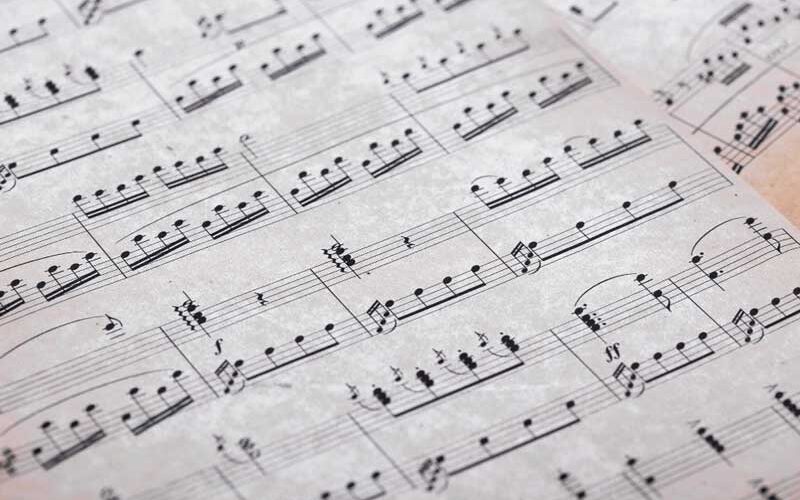Throughout human history, music has played a significant role in shaping culture and society by fostering a sense of community among people and meeting their spiritual and religious requirements. From prehistoric times to the present day, music has been a universal and enduring medium of expression.
The Origin of Music
The behavior of certain tribal societies indicates that music has played a significant role in even the most basic forms of human civilization. This may have also been true for our ancestors, who likely began creating music to mimic the sounds of nature, whether for spiritual or recreational purposes. While the human voice was likely the first musical instrument utilized, archaeologists have uncovered several primitive instruments, including flutes, that date back over 35,000 years. Some researchers suggest that evidence of music has been found even earlier, during the Neanderthal period, challenging previous beliefs about the origins of music. (Clark, 2020)
How does music affect society?
Throughout all human civilizations, music has played a vital role in influencing society on emotional, moral, and cultural levels. When cultures exchange music, it provides a valuable opportunity for gaining insights into each other’s ways of life. Understanding the connection between music and social bonding is especially critical during times of conflict, when communication may be difficult. The right to music is also a cultural right that can contribute to the promotion and safeguarding of other human rights. Music can facilitate the healing process, break down barriers, promote reconciliation and education, and serve as a powerful tool for social change and community building worldwide. At its core, music is an integral part of our daily lives, allowing us to relax, express ourselves, process our emotions, and improve our overall well-being. It has evolved into a means of self-expression and healing, often guiding us as individuals as we seek to effect change in society. (Peralta, 2021)
A declaration of war
Ahmet Ertegun, the co-founder of Atlantic Records and record producer, described Billie Holiday’s rendition of Abel Meeropol’s “Strange Fruit” as a “declaration of war” and “the beginning of the civil-rights movement,” highlighting the significant impact that music can have on society. Prior to the late 1930s, music had not directly addressed issues of racism and segregation in the United States. Racially segregated venues were commonplace, and even renowned black musicians like Louis Armstrong were accused of pandering to white audiences for financial gain, earning them derogatory labels such as “Uncle Toms” (Atkins, 2018).
Make your voice heard.
Pop music possesses the potential to prompt individuals to contemplate their place in the world, to inform the choices they make, and to contribute to the formation of their identity. Despite being consumed in solitude, music has a unifying effect that connects individuals who are moved by the same moments, ultimately influencing society as a whole. Among record labels, Motown demonstrated most effectively how music can effect change. Berry Gordy, Motown’s founder, launched the label with a mere $8,000 loan in 1959 and became the first African-American to run a record label, securing his place in history. However, it was the music and stars that emerged under Gordy’s guidance that truly revolutionized American music in the following decades, earning the label the moniker “The Sound of Young America” and taking it global, providing unprecedented opportunities for black artists that would have seemed implausible just years prior. (Atkins, 2018)
Music and the Renaissance
The Renaissance era witnessed a revolution in the music industry as secular music gained popularity thanks to the emergence of new ideas about life and art. Unlike the past, when music was solely reserved for religious purposes, the Renaissance opened up new avenues for music, and composers began writing secular music, leading to the development of new genres. Music theory also evolved, allowing composers to create more complex compositions, and instrument tuning improved significantly. Moreover, the Renaissance brought about innovations in music that were not only evident in performances but also in the composition of music. Polyphonic singing also became more prevalent during this period. (Ahemd, 2022)
Reference
Ahemd, kamran (2022). Influence of Historical Events on Music. [online] Stage Music Center In Acton and Winchester MA. Available at: https://stagemusiccenter.com/music-school-blog-winchester-acton-ma/2022/10/1/influence-of-historical-events-on-music [Accessed 18 April 2023]
Atkins, J. (2018). Say It Loud: How Music Changes Society. [online] uDiscover Music. Available at: https://www.udiscovermusic.com/in-depth-features/how-music-changes-society/ [Accessed 19 April 2023]
Clark, B. (2020). A Brief History of Music – From Origins to the Present Day. [online] Musician Wave. Available at: https://www.musicianwave.com/history-of-music/#:~:text=Music%20has%20always%20been%20an [Accessed 18 April 2023]
Peralta, L. (2021). Impact of Music on Society – Sociological Effects. [online] Save The Music Foundation. Available at: https://www.savethemusic.org/blog/how-does-music-affect-society/ [Accessed 18 April 2023]
